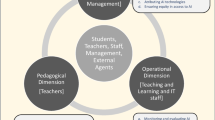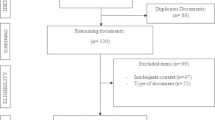Abstract
This study focuses on a group of in-service teachers in a teacher training institute in Fiji. In-service teachers in this context of study refer to full time teachers who are enrolled in teacher training institutes and take up part-time studies. The study aims to examine the in-service teachers’ experiences on ICT (Information and Communication Technology) integration in the school curriculum and their perceptions on the barriers that prevent teachers from using ICT in the classroom. It also looks at teachers’ ICT qualification to see if they have any ICT background. A validated questionnaire, which was pre-tested on pre-service teachers, was administered to 30 in-service teachers who were selected from rural, urban and remote schools. The findings indicate that majority of the teachers do not have ICT background but are able to use technology in their everyday lives and use it for mandatory record keeping purposes. However, according to the teachers, barriers such as limited access to computers, lack of funding, sporadic electricity and lack of ICT related polices and training often limit successful integration of ICT in the curriculum.


Similar content being viewed by others
References
Bakalevu, S., and Morrision, R., (2006). Fiji: Implementation of ICT in Teacher Training, http://www.comminit.com/ict-4-development/node/147606. Accessed 25 January 2017.
Baskin, C. & Williams, M. (2006) ICT integration in schools: Where are we now and what comes next? Australasian Journal of Educational Technology, 22(4), 455–473.
Dolence, M. G., & Norris, D. M. (1995). Transforming higher education: . A vision for learning in the 21st century. Ann Arbor: Society for College and University Planning.
Education Commission Report (2000). Learning Together: Directions for Education in the Fiji Islands, Ministry of Education, Suva.
Ertmer, P. (1999). Addressing first- and second -order barriers to change: Strategies for technology Intergration. Educational Technology Research and Development, 47(4), 47–61.
Garret, N. (1991). Technology in the sevice of language learning: Trends and issues. Modern Language Journal, 75, 74–101.
Gyomgyver, M. (2008). The use of innovative tools in teacher education. Szeged: Petofi.
Hagemann, M. (2012) How to enhance creativity using innovative and advanced level of ICT tools?, Lifelong Learning Programme, EACEA.
Jeffels, S. (2010). Importance of ICT in primary education, http://www.ehow.com/about6612110imortance-ict-primary-education.htmltech Accessed 15 February 2017.
Lingam G. I., & Lingam N. (2013). Making learning and teaching a richer experience: A challenge for rural Fijian primary schools. Educational Research and Reviews, 8(21), 2160–2168. http://www.academicjournals.org/ERR. Accessed 28 June 2018.
Lynch, T., Szorenyi, N., & Lodhia, S. (2002). Adoption of information technologies in Fiji: Issues in the study of cultural influences on information technology acceptance. Paper presented at the ITIRA conference. Rockhampton: Central Queensland University.
Ministry of Education (2014) 2015-2018 Education sector strategic development plan. Ministry of Education, heritage and Arts, Suva, p 23.
Ministry of Education, Heritage & Arts. (2018). The World Factbook: Fiji. http://www.education.gov.fj/ Accessed 28 January 2018.
Pelgrum, W. J. (2001). Obstacles to the intergration of ICT in education: Reults from a worldwide educational assessment. Computers in Education, 37, 163–178.
Permanent Secretary for Education, Heritage & Arts. (2018). Circulars. Retrieved from Ministry of Education, Heritage & Arts: http://www.education.gov.fj/images/MOE_CIRCULAR_84_INTRODUCTION_OF_YEAR_7_AND_8_COMPUTER_EDUCATION_AS_A_SUBJECT_IN_2018.pdf
Robinson, K. (2010). Sir Ken Robinson: Bring on the learning revolution http://www.ted.com/talks/sir_ken_robinson_bring_on_the_revolution.html Accessed 26 July 2017.
Salehi, H. & Salehi, Z. (2012). Challenges for using ICT in Education: Teachers' Insights. International Journal of e-Education, e-Management and e-Learning, 2(1), 040–043.
Sutherland, R., Breeze, N., Gall, M., Godwin, S., Mattewman, S., Shortis, T., & Triggs, P. (2014). Pegdagogy and purpose of ICT in primary education. Bristol: University of Bristol.
Tinio, V. L. (2002). ICT in education. New York: Bureau for Development Policy.
UNESCO (2017) ICT in Education. http://www.unesco.org/new/en/unesco/themes/icts/. Accessed 25 July 2017.
Whelan, R. (2010). Fiji: Pacific eLearning Observatory Brief. http://www.usp.ac.fj/?4773. Accessed 13 June 2017.
Williams, E. B. (1998). Information Technology and Distance Education. In Learning to live together: directions for education in the Fiji Islands. Report of the Fiji Islands education commission (pp 312–324). Suva: Government Printing Press.
World Education Forum (2015). World education forum: Final report, United Nations Educational, Scientific and Cultural Organisation. pp 19.
Author information
Authors and Affiliations
Corresponding author
Additional information
Publisher’s Note
Springer Nature remains neutral with regard to jurisdictional claims in published maps and institutional affiliations.
Rights and permissions
About this article
Cite this article
Nath, S. ICT integration in Fiji schools: A case of in-service teachers. Educ Inf Technol 24, 963–972 (2019). https://doi.org/10.1007/s10639-018-9803-6
Received:
Accepted:
Published:
Issue Date:
DOI: https://doi.org/10.1007/s10639-018-9803-6




